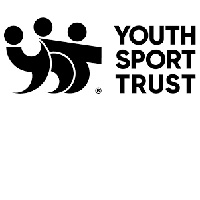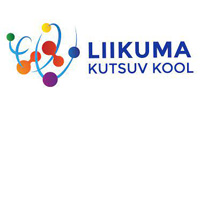ISCA AWARDS 2025: Global IRTS
WINNERS
WINNERS ISCA AWARDS 2025: Global IRTS
Category 1: IRTS & Community

Luta pela Paz
About the organization
Luta pela Paz (LPP) uses sport as a tool to respond to the urgent need to improve access to mental health support for youth in the Maré favela in Rio. Youth from Maré face high levels of poverty, inequality and discrimination, and extremely high levels of armed violence: a 2021 study revealed 62% of Maré residents always or often feared being shot. Despite this, only 2% of national health budget is spent on mental health and youth from favelas are least likely to access what support exists. LPP uses boxing and martial arts to improve young people's mental well-being, and as an entry point to provide destigmatising workshops and tailored psychological support through Care Diaries, a methodology using a social-media inspired activity book to support youth to reduce symptoms of anxiety and depression.
Category 2: IRTS & Mental Health

Youth Sport Trust
About the organization
Move and Groove is an innovative intergenerational project combining the worlds of music and sport to deliver health and wellbeing outcomes for young and older generations. Working with 10 UK schools and care homes, Youth Sport Trust and Intergenerational Music Making trained schoolteachers and care staff to lead intergenerational physical and music activities in care homes bringing joy to old and young alike. Using sports equipment, musical instruments and session delivery guides, Children from 4-16 years old joined in, encouraged and sometimes led weekly fun activities for their new older friends over 6-weeks. The impact on the older people (mean age, 83 years) was clear. Self-reported positive mood increased while negative mood, loneliness, depression, anxiety, and stress decreased.
Category 3: Refugee-led initiatives

University of Tartu’s Move Lab
About the organization
Schools in Motion (SIM) is a programme that supports schools in integrating physical activities into every school day, including active travel to and from school, as well as movement during and in between lessons, both in and outdoors. It helps movement gain a greater foothold in school culture. Already 203 schools in Estonia have joined to SIM (35% of general schools), varied in location and size (from 17 to 1600 pupils, in the countryside, small and large towns), including schools for children with different native language and with special education needs.
Category 4: Role model (Citizen’s Choice)

Marina Draskovic
Judo club for people with disabilities FUJI
About
As former professional judoka and longtime member of the Croatian Judo National Team Marina Drašković is breaking down participation barriers in judo and is creating new standards of sports inclusion not just in Croatia, but across the whole of Europe. In 2012 she founded the Judo Club for People with Disabilities Fuji, bringing together children and young people with cerebral palsy, Down syndrome, intellectual disabilities, motor difficulties, autism spectrum disorders and others. Youth with disabilities are among the most vulnerable groups in society. By becoming head of the Adapted Judo programme within the European Judo Union (EJU), Marina is climbing new heights and laying the foundation for the development of adaptive Judo all over Europe.
SHORTLISTED APPLICANTS
ISCA AWARDS 2025: Global IRTS
Shortlisted Applicants
| Category 1: IRTS & Community | |
| Intelligent Health | UK |
| Luta pela Paz | Brazil |
| Yoga and Sport with Refugees | Greece |
| Category 2: IRTS & Mental Health | |
| German Gymnastics Federation | Germany |
| Youth Sport Trust | UK |
| Lunga Vita Attiva Aps | Italy |
| Category 3: Refugee-led initiatives | |
| University of Tartu’s Move Lab | Estonia |
| University of Bradford | UK |
| Mathare Girl Power Project | Kenya |
| Category 4: Role model (Citizen’s Choice) | |
| Aneta Grabmüller Soldati | Czech Republic |
| Layana Souza | Brazil |
| Marina Draskovic | Croatia |
ELIGIBLE APPLICANTS
ISCA AWARDS 2025: Global IRTS
Eligible Applicants
| Category 1: IRTS & Community | |
| Your Foot, My Foot Foundation | Chicago, IL |
| Strilky Village Council | Strilky Village, Lviv region, Ukraine |
| UkraineActive | Kyiv; Ukraine |
| Fédération Sportive et Gymnique du Travail (FSGT) | Pantin ; France |
| Te Aud Romania Foundation | Gura Humorului, Romania |
| Republic of Türkiye Ministry of Youth and Sports | Türkiye |
| Creating Chances | Australia, Sydney |
| FUDELA -Fundacion de las Americas | Quito; Ecuador |
| Cheza | Kampala - Uganda, Juba - South Sudan |
| Glasswing Panamá | Panama City; Panama |
| Sanctuary Runners | Ireland |
| Reclaim Childhood | Jordan (multiple cities) |
| Free Movement Skateboarding | Athens, Greece |
| Association ENERGY | Varna, Bulgaria |
| UISP MODENA APS | MODENA ITALIA |
| Sport and Citizenship | France |
| Umoja Sport Foundation | Democratic Republic of the Congo |
| Palestine Sports for Life | Ramallah, Palestine |
| Fundación Real Betis Balompié | Seville, Spain |
| Waves for Change (Take 5) | Cape Town, South Africa |
| Sport for Life Society | Victoria, Canada |
| Stichting KLABU Foundation | The Netherlands |
| PlayMore! | Milan, Italy |
| Refugees Rock | Liverpool, United Kingdom |
| ChezaCheza | Nairobi, Kenya |
| Football Federation of Armenia | Armenia |
| UNHCR | Cox's bazar, Bangladesh |
| Youth Sport Uganda | Kampala; Uganda |
| Podgorica, Montenegro | Podgorica, Montenegro |
| Alhalimun الحَالمُون | Cairo, Egypt |
| PPG Sports | Islamabad, Pakistan |
| Fútbol Con Corazón | Barranquilla, Colombia |
| Save the Children Sweden | Gothenburg |
| Yoga and Sport with Refugees (YSR) | Greece |
| south rockies baseball5 club | Nairobi; Kenya |
| Beyond Hoops Africa | Kenya & Canada |
| BONYAN | IMAGINE Academy South Sudan |
| IMAGINE Academy South Sudan | Torit, South Sudan |
| Impact Academy Egypt | Egypt |
| LALIGA | Copenhagen; Denmark |
| Category 2: IRTS & Mental Health | |
| Squash Dreamers | Amman; Jordan |
| Fundación Crisalida Internacional (Glasswing Costa Rica) | Costa Rica |
| IIISSS Institute/Sport4Impact | Italia |
| Devon and Cornwall Refugee Support | Plymouth; UK |
| UkraineActive* | Kyiv; Ukraine |
| UkraineActive* | Kyiv; Ukraine |
| European Culture and Sport Organization | Rome, Italy |
| FUNDACION DEPORTIVA ELINA MORALES | Valledupar; César |
| Fundación de las Américas para el Desarrollo, Partners of the Americas | Quito, Ecuador |
| Terre des hommes (Tdh) Egypt | Cairo, Egypt |
| Laureus Sport for Good Foundation Germany | Munich |
| Palestine Sports for Life | Ramallah; Palestine |
| United States of America | United States of America |
| Stichting KLABU Foundation | The Netherlands |
| United Partners for Humanitarian Welfare | Burundi |
| FAME Foundation for Girls and Women Empowerment | Nigeria |
| Swiss Academy for Development | Biel/Bienne; Switzerland |
| Community Support center / CSc-Asbl | Uvira, Democratic Republic of Congo |
| Japan Karate Association, Pakistan | Pakistan |
| Football Beyond Borders | London;UK |
| Dream Big for Inclusion and Antiracism | Italy |
| Hobby Lobby | Austria, Germany, Romania |
| EmpowerVan | Greece |
| *UkrainActive is represented with two different inisiatives in this Category | |
| Category 3: Refugee-led initiatives | |
| UkraineActive | Kyiv; Ukraine |
| EDNAE | Suceava, Romania |
| Support Group Network Deutschland e.V. | Stuttgart; Germany |
| Creating Chances | Australia, Sydney |
| BAYINE SPORTS ACTIVITIES | CAIRO, EGYPT |
| Breaking Grounds – Social Change through Sport | Austria |
| Hope of Children and Women Victims of Violence (HOCW) | Kampala - Uganda |
| Stichting KLABU Foundation | The Netherlands |
| Soccer Without Borders Uganda (SWB Uganda) | Uganda |
| Skateistan | Berlin |
| Kick4peace Organisation | Somalia/France |
| Impact Academy | Cairo Egypt |
| Girl Power Organisation | Frederiksberg |
| Bayine Sports Activities | Egypt |
| Refugee Brotherhood | Nairobi; Kenya |
| ACSA Cultural & Sport Association (ACSA) | New Westminster, BC, Canada |
| The Refugees Basketball Initiative | Kakuma, Kenya |
| Türkiye | Türkiye |
| Category 4: ROLE MODEL (Citizen’s Choice) | ||
| Gabriela Cristina Popescu | Fundația Te Aud România | Gura Humorului, Romania |
| Shegofa Hassani | Creating Chances | Australia, Sydney |
| Andrii Boliak | UkraineActive | Kyiv; Ukraine |
| Nigara Shaheen | Toronto | |
| Ibrahim Hourani | Beirut, Lebanon | |
| Farid Walizadeh | GAME | Portugal - Afghanistan |
| Zainab Hussaini | Berlin, Germany | |
| Arabinrin Aderonke | Skateistan | Nigeria |
| Timothy Kajja | FAME Foundation for Girls and Women Empowerment | Kampala, Uganda |
| Mohamed Sanusi Jalloh | Young African Leaders in Sports Forum | Kenema Town, Sierra Leone |
| Kupakwashe Desmond Mukurumbira | Indigenous minority Fulani-Mbororo community in Sierra Leone (IMF-S) | Zimbabwe |


#MOVINGPEOPLE

"Funded by the European Union. Views and opinions expressed are however those of the author(s) only
and do not necessarily reflect those of the European Union or [name of granting authority]. Neither
the European Union not the granting authority can be held responsible for them"